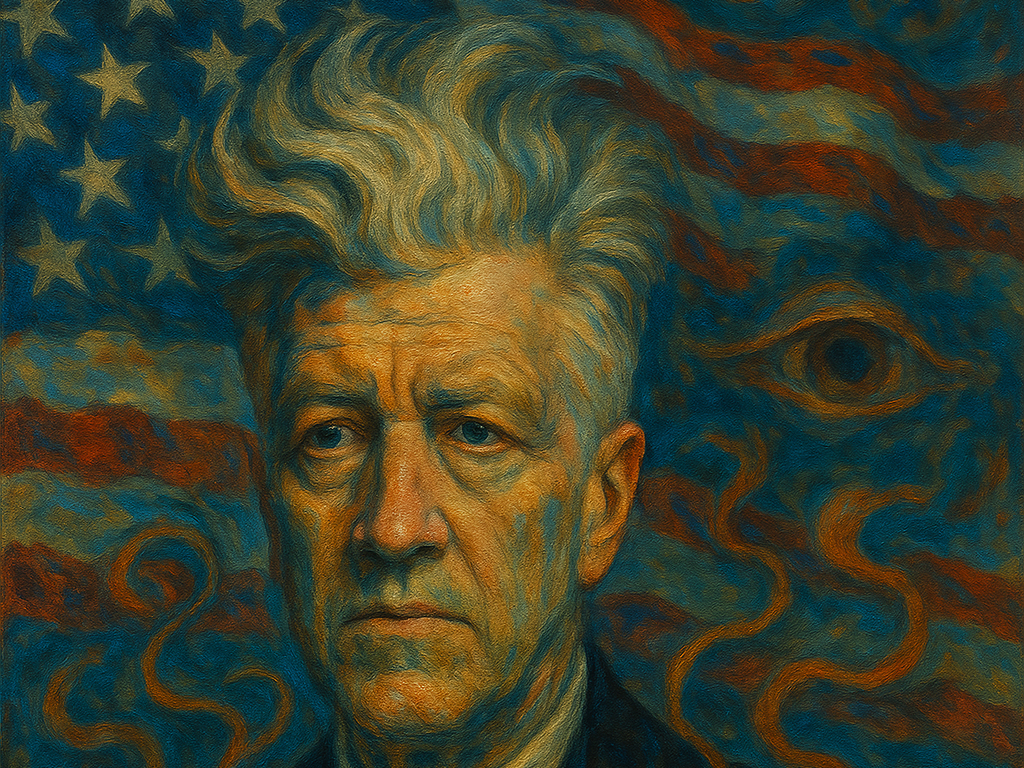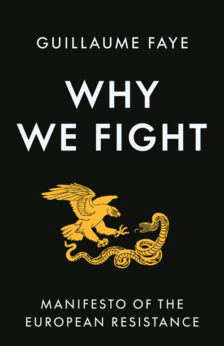While the majority of directors make films that dull the minds of viewers, he chose a different path and sought to awaken them. He contributed to the great awakening of the American people that is currently unfolding before our eyes. We are speaking of David Lynch, the American director whose films penetrate the screen and seize the viewer. This path was not predetermined: In the mid-1960s, he began studying at the Pennsylvania Academy of Fine Arts in Philadelphia. There, Lynch practiced painting. But one night, while observing how the blackness yielded to green in the garden, he thought to himself: “It would be good to paint a moving picture!”
Many elements of his paintings can be found in his films: industrial landscapes, surrealistic horror scenes, but also the America of the 1950s — small towns, cars, diners, and cherry pie. Lynch himself grew up in such a place, where children could play alone in the street at night. But when, in broad daylight, he once saw a distraught naked woman walking down the street, he instinctively knew that something was not right.
The Real America: Small Towns, Cherry Pie, and Blue Roses
Accordingly, his films portray the real America, shaped by a longing for rural life far from the metropolises and by the pragmatic philosophy of the American spirit, in which anything is possible so long as it works, and norms are meaningless. At the same time, they are suffused with violence, unrestrained sexuality, and innocence. His film Blue Velvet (1986), for instance, presents a bourgeois small-town idyll behind whose facade sadism reigns. Lynch was solely concerned with depicting reality. The “small happiness” can have no foundation unless it is secured by sacrifice — in his films, this ancient certainty takes shape in the monsters that slumber in the background and demand their tribute.
From then on, the blue rose has become a symbol of taboo and the gaps in America’s memory: the genocide of the Native Americans, the atomic bomb, and cultural hegemony are all addressed in his work. Hollywood itself was subjected to critique in his film Mulholland Drive (2001), celebrated as a masterpiece, where the dream factory is shown to exploit and discard people en masse so that a select few may succeed — long before the “MeToo” scandal broke.
Twin Peaks: The Conservative Utopia and the Path to the Black Lodge
For many, the series Twin Peaks (1990–2017) represents the pinnacle of his oeuvre: over three seasons and a feature film, the story is told of the conservative utopia of Twin Peaks, a seemingly idyllic small town in the heart of the United States, shaken by the murder of Laura Palmer. Even leftists loved the series, in which deep America confronts its unreal idealization — a version that never truly existed. The FBI agent Dale Cooper, originally from the big city, encounters not only the town’s charming residents during his investigation but quickly realizes that he is part of a cosmic battle between good and evil. In the Black Lodge, where dwarves and giants exist, time runs backward — upper world, middle world, and underworld from Indo-European mysticism reappear here. Dale Cooper himself is no simple hero — the embodiment of pure evil creates a doppelgänger who goes on a murderous rampage through the town. It seems Lynch wants to draw our attention to this intrusion of the Black Lodge (modernity) into our reality, along with its black miracles (genetic engineering, transhumanism). Laura Palmer returns to life, but she is no longer the same person mentally. The United States was the first nation to enter the Black Lodge — and it will be the first to leave it again.
David Lynch’s body of work helps us Europeans better understand this path and may also point us towards a way out — towards a great awakening from modernity.
(Translated from the German)







